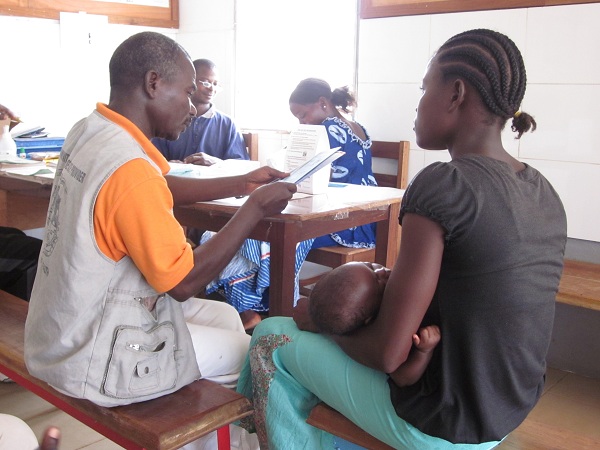Capacity
Capacity Strengthening
Now it is time to implement your capacity strengthening plan. Plan for frequent on-the-job and need-based refresher training during the first several months or as new topics are rolled out.
The intensity of capacity strengthening with community agents and health providers will be more extensive for an integrated SBCC program than for a vertical one. They will need to master all of the new information and be able to tailor their counseling according to the client in front of them – not just go through the list of topics covered in the integrated strategy. Therefore, more time, financial resources and follow-up support will be needed to ensure agents and providers are properly trained on how to integrate messages. Frequent supportive supervision visits should be built into the program, especially during the initial roll out of the program. Supervisors should ensure that community agents and providers select and deliver integrated messages appropriately tailored to their audiences, and do not revert to delivering siloed topics and messages.
Providers
Providers will need to master all of the new information and be able to tailor their counseling according to the client in front of them – not just go through the list of topics covered in the integrated strategy. Providers should be trained on how to assess the overall needs of their clients based on their health needs, and understand which complementary products, services and behaviors should be discussed during counseling.
Program Experience
(When you see a Program Experience, simply click on the photo to read insights from real integrated SBCC programs.)
Tip
Mobile-based tools and applications can be particularly useful training approaches for integrated SBCC programs. Following an initial in-person training, the apps can be easily updated and expanded with additional content without the need to come face-to-face.


 Capacity Strengthening
Capacity Strengthening